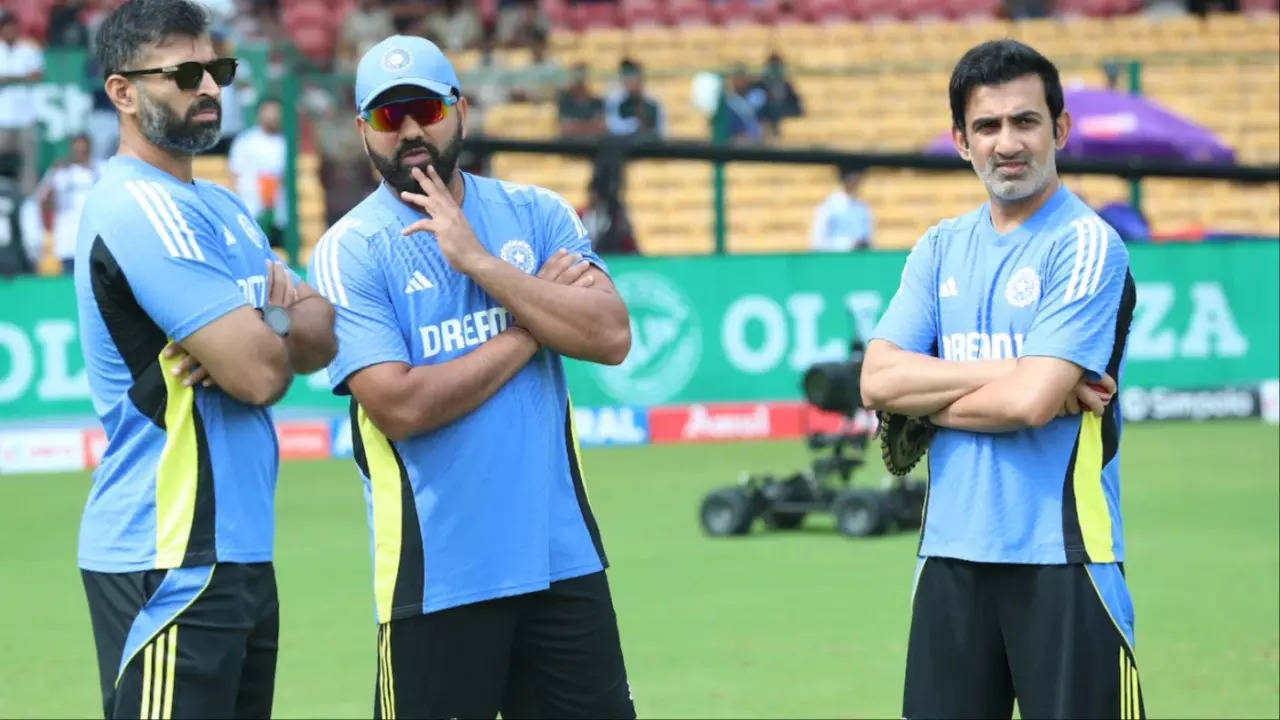 |
|
The absence of Indian cricket captain Rohit Sharma from the Sydney Test against Australia has ignited a firestorm of controversy, primarily centered around the lack of transparency surrounding his exclusion. While Rohit's poor form with the bat in the Border Gavaskar Trophy series had been a subject of much speculation and criticism, his omission from the playing XI, and indeed the 15-man squad, was announced without the clear communication that many felt was warranted. This lack of official clarity led to a whirlwind of rumors and conflicting reports emanating from within the Indian team's inner circle, causing unnecessary confusion and speculation among fans and the media alike. The situation underscores a crucial aspect of sports management: the importance of open and timely communication in handling sensitive matters involving high-profile players.
Former Indian opener Aakash Chopra, a prominent figure in cricket commentary, was among the most vocal critics of the communication strategy employed by the Indian team management. In a video posted on his YouTube channel, Chopra expressed his disappointment and bewilderment at the lack of a formal announcement regarding Rohit Sharma's non-participation. He argued that either Rohit himself, or another senior member of the team such as Gautam Gambhir, should have been the one to officially confirm the captain's absence from the match. Chopra highlighted the unprofessional nature of allowing multiple, unofficial accounts of the situation to surface, painting a picture of disorganization and a lack of clear leadership from the team's management. He questioned the delay in announcing Rohit's exclusion, suggesting that the decision should have been communicated well in advance to avoid the ensuing uncertainty.
Despite his criticism of the communication strategy, Chopra did commend Rohit Sharma's decision to prioritize the team's success over his own. He acknowledged that stepping aside while struggling with form is a display of great sportsmanship and leadership. In Chopra's view, this decision should have been celebrated as a momentous occasion in Indian cricket – a captain willingly sacrificing his place in the team for the greater good. However, he lamented that this positive aspect of the situation was overshadowed by the lack of clear communication. This highlights a recurring theme in sports: the importance of framing narratives effectively. A positive action, such as selflessly prioritizing team success, can be rendered less impactful, or even negatively perceived, if not communicated properly.
The circumstances surrounding Rohit Sharma's absence are symptomatic of a wider issue within the world of professional sports: the tension between managing the public perception of a team or individual athlete and the internal dynamics of the team. There is a delicate balance between maintaining transparency and respecting the internal workings of the team. In this instance, the balance tipped too heavily towards secrecy, leaving a vacuum that was quickly filled with speculation and, in some cases, misleading information. This incident serves as a valuable lesson for sports management teams about the paramount importance of clear and proactive communication, even in delicate or challenging situations. The absence of a clear and official statement allowed the rumor mill to flourish, potentially damaging the reputation of the team, the captain, and even the sport itself.
Beyond the immediate impact on the Sydney Test, the situation raises questions about the long-term implications for team cohesion and morale. The ambiguity surrounding Rohit Sharma's omission could create a sense of uncertainty and insecurity amongst the players. A lack of trust in the leadership could potentially undermine team performance in future matches. This underlines the far-reaching consequences of poorly handled communications in the world of elite sport, emphasizing the importance of building a culture of open and honest communication within the team. Effective communication, both internally within the team and externally with the public, is crucial for maintaining morale, trust, and ultimately, success on the field.
